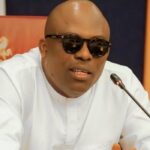Seated on a comfy couch, eyes glued to a large television screen, arm half-stretched, he raised his right index finger proudly just above his trademark cap. Within seconds, he clenched his fist and rose magisterially to rousing cheers of victory from allies and supporters who surrounded him in the expansive living room.
Asiwaju Bola Ahmed Tinubu of the All Progressives Congress (APC) had just been announced winner of the February 25 presidential election by the Chairman Independent National Electoral Commission (INEC), Prof Mahmood Yakubu having polled 8,794,726 votes.
That early March 1 morning, 28 days shy of his 71st birthday, a “lifelong ambition” the former Lagos State governor made public on January 10, 2022, shortly after he visited outgoing President Muhammadu Buhari at the Villa, had just come to fruition.
While the jubilation in the 18-second video lasted, Tinubu flashed a wry smile; his spectacles sitting artfully on his nose ridge. Emilokan, ‘it’s my turn,’ his famous campaign slogan has finally transmuted from a mere wish into an amazing reality.
Remi Tinubu: We Don’t Need Nigeria’s Wealth To Survive
Bode George: I’ve forgiven Tinubu but can’t forget
The celebration spread from the room to the streets and cities as Tinubu’s teeming supporters marked his victory in style. Perhaps, the celebration would climax May 29 when Jagaban – as he is fondly called – will be sworn in as the 16th Nigerian President at Eagle Square, Abuja.
But by dusk that day, the party would have been decidedly over. Nigerians, and indeed the international community, would expect Tinubu to hit the ground running in fulfilment of his pledge to renew the hope of millions of masses.
Interestingly, the septuagenarian is not unaware of the onerous tasks before him – insecurity, secessionist agitations threatening national unity, growing youth unemployment, wobbling economy characterised by galloping inflation and weak local currency.
Despite these crises and more, Tinubu has assured the citizenry he is up to the task. “Renewed hope has dawned in Nigeria,” he affirmed in his acceptance speech as President-elect.
But does the former senator really have what it takes to clean the Augean stables and set Nigeria on the path of prosperity? Let’s take a journey through the life of one of the world’s 100 most influential personalities.
Rise of technocrat turned astute politician
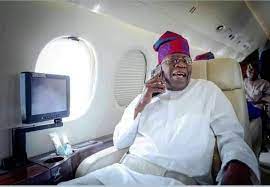
Tinubu started out as a technocrat; a seasoned accountant. During his sojourn abroad, he worked for the American companies: Arthur Andersen, Deloitte, Haskins & Sells and GTE Services Corporation. And upon his return to Nigeria in 1983, he joined Mobil Oil as an auditor, rising through the ranks to become an executive of the company.
He began to make inroads into the political Hall of Fame in 1992 when he was elected senator representing Lagos West Senatorial District in the short-lived 3rd Assembly. He then joined forces with the National Democratic Coalition (NADECO), a coalition of democrats, demanding the military government led by General Sani Abacha to step down for the winner of the 12 June 1993 election, late MKO Abiola.
After four years in exile, Tinubu returned to the country in 1998 to contest the governorship election in Lagos – his home state – as Nigeria prepared for a transition into democratic rule.
A two-term governor, Tinubu prides himself as the brains behind the transformation of Lagos from the doldrums to one of the largest economies in Africa. And so do many of his allies who vigorously campaigned for his presidency based on this accomplishment.
At the annual general conference of the Nigerian Bar Association (NBA) held in Lagos in August 2022, Vice President-elect, Senator Kashim Shettima, who represented Tinubu at the event said as at 1999 when Tinubu became governor, there was only one ambulance in the service of the Lagos state government and that the state was earning N700 million in internally generated revenue (IGR).
“Now, Lagos is earning N51 billion every month, Lagos is the third largest economy in Africa,” Shettima added.
Also, in April 2022 when Tinubu met with 15 APC state assembly speakers at a forum hosted by the Lagos House of Assembly, he boasted of his administrative prowess, saying he helped the state to become the largest economy in Africa.
“I was raised to be courageous and this has been working for me. With zero allocation from FAAC, I turned Lagos State around and today, the state has become the largest economy in Africa. I reserve the right to brag. I want to bring the same to bear as the President of Nigeria,” Tinubu said.
Though some of these strides have been found to be overblown, there seems to be a consensus that Tinubu is the pacesetter for the remarkable developments Nigeria’s economic capital has witnessed in the last two decades.
Tinubu also managed to fund local governments in the state from 2004 to 2007 when former President Olusegun Obasanjo-led federal government suspended the councils’ funds.
While the claim that Lagos is the largest or third largest economy on the continent has been punctured, it is indisputable that the state is one of the largest economies (fourth) in Africa – a feat many ascribe to Tinubu’s ingenuity which laid the foundation for the successive administrations in the state.
In a recent interview with Channels TV, Minister of Works and Housing, Babatunde Fashola alluded to Tinubu’s leadership depth while comparing him with Buhari, saying the former can micromanage a team better than the latter.
“For those who are going to work with him (Tinubu), he is very nocturnal. I hope he changes. He will wake you up at night. He does his best work in the dead of the night. Unless you push back and claim your space at night, he will encroach it; he is very detailed; he micromanages more than President Muhammadu Buhari.
“I was speaking with somebody and I said imagine there are two football coaches; President Muhammadu Buhari is the type of football coach that will prepare his team, sit in the dugout and watch them play for 90 minutes. He trusts them to do the work and believes there is nothing he can do.
“Asiwaju would be that kind of coach playing the game with them (in the dugout). Those are the two differences you’ll see. One prepares, and one delegates completely. One delegates and stays with you and each one has his strength,” the minister said.
Talent hunter and kingmaker
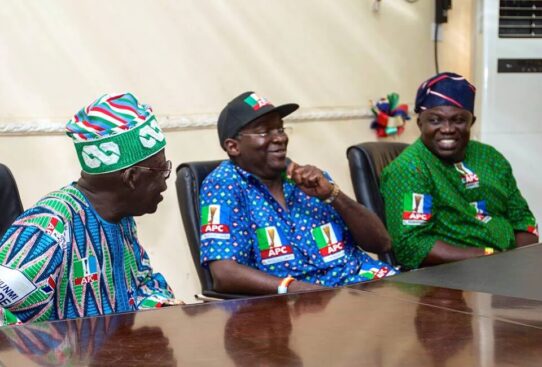
Beyond his much-touted administrative acumen, Tinubu is reputed for spotting talented individuals and putting them at the helm. Indeed, there are testimonials: outgoing Vice President Yemi Osinbajo, who worked with him as Commissioner for Justice and Attorney General in Lagos; Fashola, who was his Chief of Staff and later succeeded him as governor; Akinwumi Ambode, who revolutionised Lagos’ finances as the accountant general of the state and eventually became governor; incumbent Governor Babajide Sanwo-Olu who was Commissioner for Commerce and Industry under the Tinubu-led administration, among others.
“I am a talent hunter. I put talents in office, I help them,” Tinubu told Reuters during the 2015 governorship election in the state. “I use the best hand, the best brain, the best experience for the job.”
Tinubu has also installed several ‘kings’ outside Lagos. He was instrumental in the emergence of Rauf Aregbesola and Gboyega Oyetola as governors of Osun State at different times and is revered as one of the few leading political icons of all times in the South West.
In the outburst that birthed ’emilokan’ in Abeokuta, Ogun State capital, Tinubu dropped a hint of his influence in other states of the region.
“This one sitting at my back, Dapo, could he have become a governor if not for me?” Tinubu querried in an attempt to chide Governor Dapo Abiodun for supporting Osinbajo who was also aspiring to presidency.
At the same event, Tinubu spoke gleefully of his role as a kingmaker at the national level. He reminded the audience of how he orchestrated Buhari’s presidency after three failed attempts by the retired general.
Surrounded by controversies
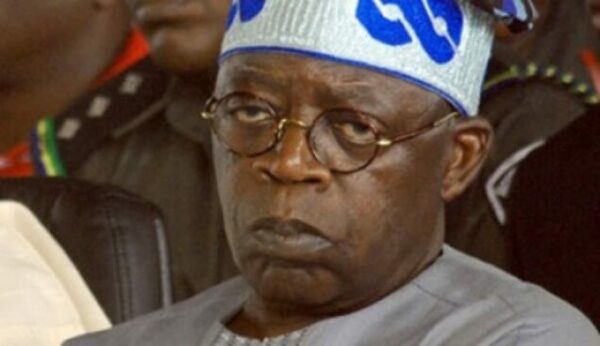
Many Nigerians, particularly political rivals, have asked tons of questions about Tinubu’s birth, age and education. They alleged he actually hailed from Iragbiji in Osun State, falsified his age, forged his certificate and was enmeshed in multimillion dollar drug related crime in the United States in the 70s.
Tinubu’s assets were reportedly frozen by the US Government on the suspicion that his American bank accounts held the proceeds of drugs and he was said to have settled with the government, forfeiting about $460,000.
All these narratives, including the claim that he altered his name from Yekini Amoda Ogunlere to what he currently bears, gained momentum in the build-up to the 2023 general elections.
Controversies around his education resurfaced when he neither provided information about his primary and secondary education nor attached his university certificate in his personal details published by INEC. Instead, he swore to an affidavit, claiming his house was burgled and his certificates stolen during the time he was in exile.
Though Tinubu is silent about his father, he has publicly identified himself as son of the late Iyaloja General of Lagos, Abibatu Magaji, and an indigene of the state. He has also denied complicity in any drug deal and maintained he graduated from the Chicago State University.
“The allegations against Tinubu are merely a storm in a teacup; they are not new and have been sufficiently dealt with…these issues have been in the public domain for more than 20 years and have been sufficiently addressed,” Festus Keyamo, spokesperson for Tinubu/Shettima Presidential Campaign Council, had said.
Tinubu’s source of stupendous wealth has been under public scrutiny, with many alleging he amassed his fortunes by proxy from the state treasury as the godfather. He once admitted to his massive wealth, boasting that he was richer than Osun State.
In 2007, the Federal Government brought Tinubu before the Code of Conduct Bureau for trial over the alleged illegal operation of 16 separate foreign accounts while in office, but the charges were eventually quashed on technicality grounds.
In an interview with BBC during his visit to Chatham House in London, Tinubu admitted that he was the most investigated and most accused former governor without any evidence to nail him.
“Are they enemies of wealth? If they are not enemies of wealth, investments do yield. I have an example of Warren Buffet, one of the richest men in America and in the world. He started from stock buying. I inherited great real estate, I turned the values around,” he said in response to corruption allegations against him.
When prodded further on the allegation that he was taking a certain share of the revenue generated in Lagos State, he snapped, “Hey excuse me, share what? Have they proven it? IMF has investigated the record in Lagos. What is wrong with them? It is envy.”
Delivering campaign promises amid health concern
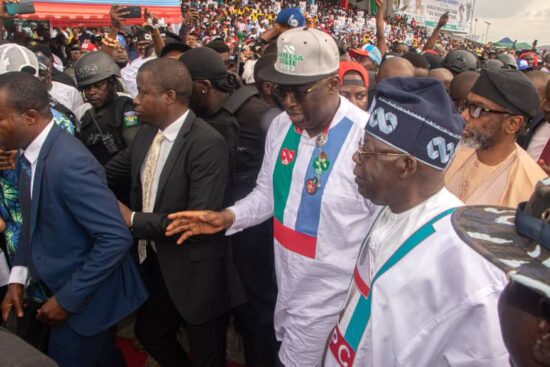
Dubbed as ‘Renewed Hope 2023,’ Tinubu’s manifesto contains his resolve to deliver on all fronts: national security, economy, agriculture, power, oil and gas, transportation, education, healthcare, digital economy, sport, entertainment and culture, youth empowerment and entrepreneurship, women empowerment, social programmes, judicial reform, federalism/decentralization of power and foreign policy.
“I will get Nigeria to work by launching a major public works programme, a significant and heavy investment in infrastructure, and value-adding manufacturing and agriculture.
“My administration will build an efficient, fast-growing, and well-diversified emerging economy with a real GDP growth averaging 12% annually for the next four years, translating into millions of new jobs during this period,” he said.
He equally promised to find a “creative means of funding tertiary education by granting universities the financial autonomy to explore new sources of financing through grants, corporate sponsorship, tuition fees etc.” and “devolve more revenues and powers to the states and local governments to bring governance and decision-making closer to the people.”
Tinubu also pledged to build a Nigeria that will export more and import less to strengthen the naira and “our way of life,” train and give economic opportunity to the poorest and most vulnerable population “and, most importantly, establish a bold and assertive policy that will create the strong yet adaptive national security architecture and action to obliterate terror, kidnapping, banditry, and all other forms of violent extremism from the face of our nation.”
Tinubu wanted to do all of these and more, even though many Nigerians have curiously expressed concerns over his health. Going by Fashola’s account, Jagaban was between 46 and 55 as a governor when he micromanaged, was very detailed and made best decisions mostly at night.
Things have changed. Tinubu now manages health challenges that come with old age and travels abroad for medical treatment. His occasional gaffes and seemingly slurred speech have raised questions over his mental capacity to govern a nation as complex as Nigeria. However, he and his handlers have insisted there is no cause for alarm.
It is 16 years since Tinubu was last in the saddle in Lagos directly. Can he wave a magic wand to fix Nigeria? Can he galvanize his cabinet into productive actions that can truly renew the hope of vulnerable Nigerians? Will he be able to lead a government that delivers real dividends of democracy to the masses? Only time will tell.
Featured image: CNN
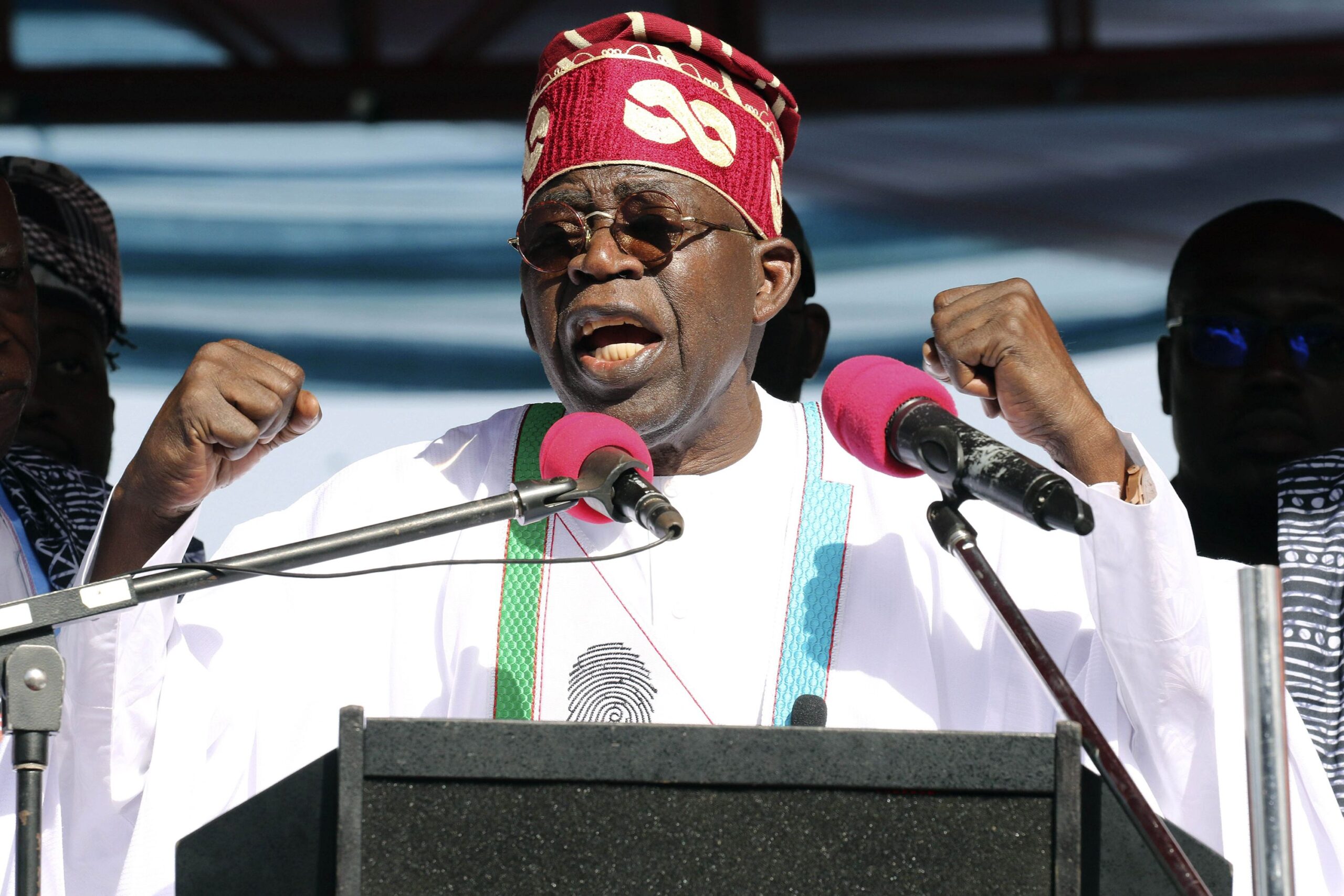
 Join Daily Trust WhatsApp Community For Quick Access To News and Happenings Around You.
Join Daily Trust WhatsApp Community For Quick Access To News and Happenings Around You.


